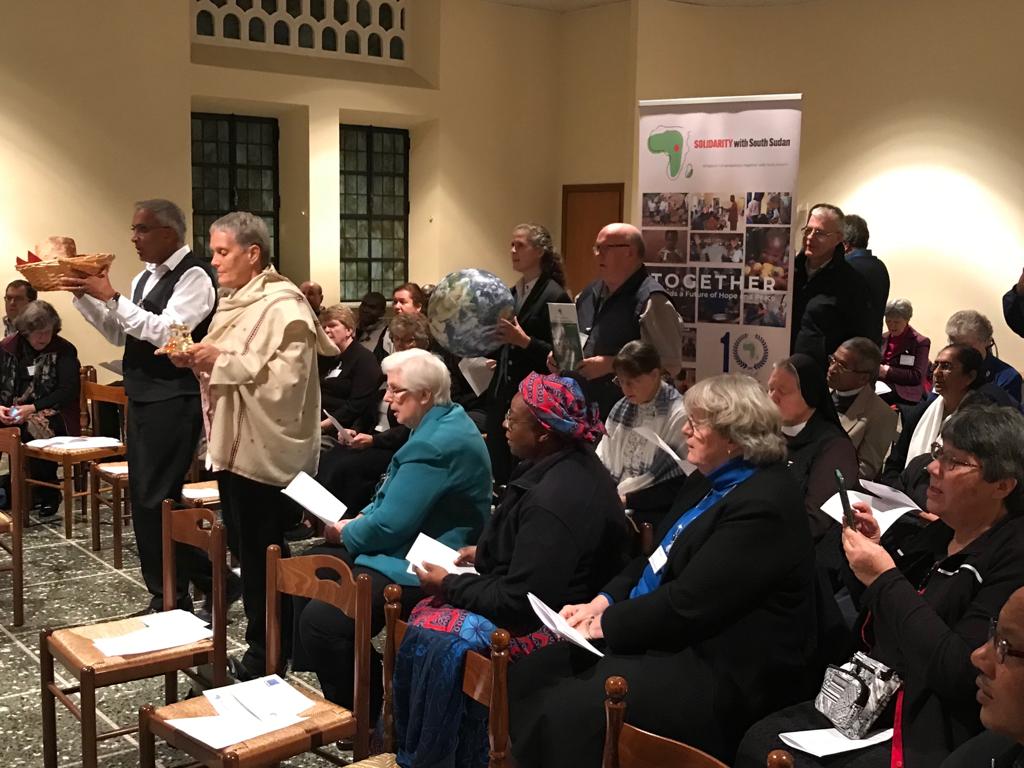
Five intercongregational religious communities
The initiative known as Solidarity with South Sudan was inspired by the Congress of Consecrated Life which took place in 2014: Passion for Christ, passion for the humanity.
The Union of Superiors and Superior Generals listened to the call of the Conference of Bishops from South Sudan to respond to the needs of people, after suffering three decades of war, in critical areas for example: formation of teachers, formation of male nurses and matrons, agricultural experts and social work initiatives .
From 2008, five intercongregational religious communities established themselves in South Sudan to follow that mission. Today there are 30 priests, religious and lay persons from 18 countries and 19 different congregations. Of these, two are Marist Brothers: Christian Ndubisi Mbam and Longinus Uchechukwu Dimgba, both from Nigeria.
In this year of 2018 we commemorate 10 years of solidarity with the people and the Church of South Sudan. The celebration took place on the occasion of the Assembly of Solidarity with South Sudan, celebrated on November 28 in the General House of the De La Salle Brothers.

The Assembly was marked by welcoming Father Paulo Smyth, President, who also gave a breakdown of the history, witnesses and mission of Solidarity with South Sudan, followed by some prayerful time. Also presented and approved was the submission of accounts for 2018, as well as the budget for 2019.
Following this, those taking part inthe Assembly were given,in greater detail, the 4 main performance areas developed in South Sudan: education, health, sustainable agriculture and social work. The day ended with a lively Eucharistic Celebration, followed by afestive meal to celebrate the 10 years since the foundation.
The needs of the people in South Sudan are many. In the greater part of the country there is a problem of security, more than half of the population experiences hunger, the social services are reduced to a minimum, the economy is failing and is marked by a strong degree of corruption. The peace which is so desired is not synonymous with just the cease fire and surrender of weapons. Peace is a system of justice, an appropriate application of laws and the reduction of corruption. The country needs to be unified and to be productive. In that sense, in these 10 years of the history of the project, set up by the religious, contributes to the country by the formation of male nurses and matrons; also with the formation of social work helpers better equipped in trying to cure the traumas left by the war; through the formation of farmers to acquire a strongly based economy; and formation of teachers coming from all the regions of the country.
The combined efforts and collaborative work among the congregations and lay people, in association with the local Church, is making a difference in South Sudan. But there is much to be done. At this moment the greatest challenge is the need for a greater number of people available to dedicate some time in their lives to helping in this situation. This is a plea to all the congregations.
- To learn more, visit www.solidarityssudan.org
_____________________
The word “solidarity” is a little worn and at times poorly understood, but it refers to something more than a few sporadic acts of generosity. It presumes the creation of a new mindset which thinks in terms of community and the priority of the life of all over the appropriation of goods by a few (Evangelii Gaudium, 188).
A decade of Solidarity from Paul Jeffrey on Vimeo.
